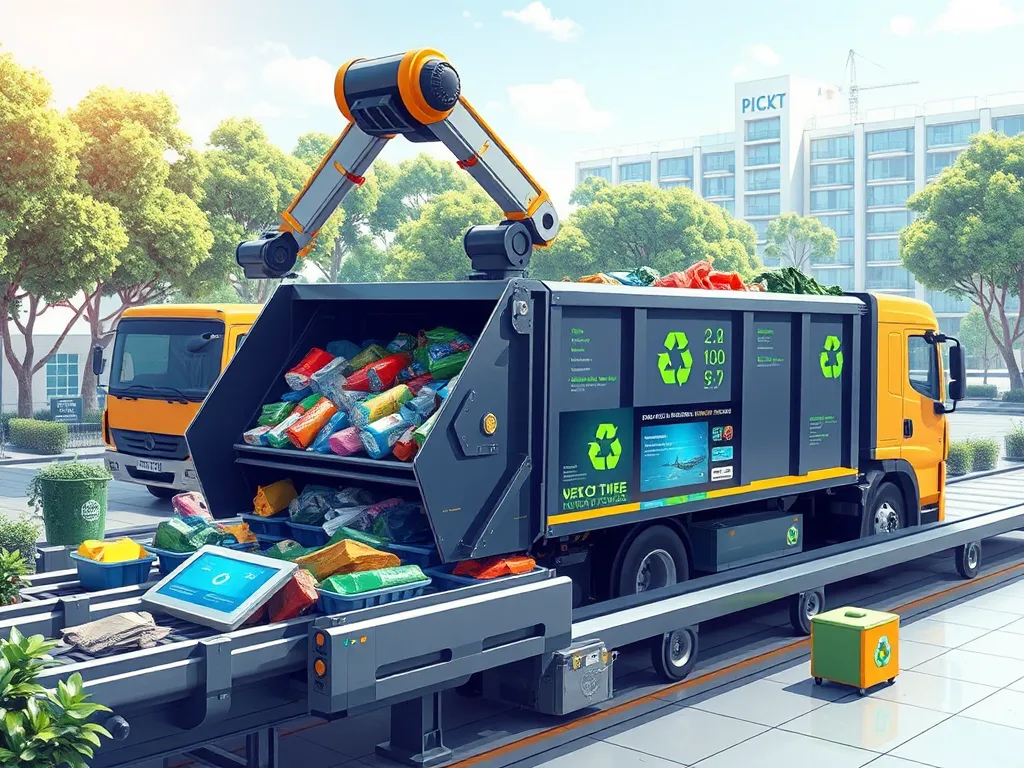Innovations in Dumpster Rental and Waste Removal Technology

Innovations in Dumpster Rental and Waste Removal Technology
The field of dumpster rental and waste removal technology has witnessed significant innovations in recent years, reshaping how waste management is executed. Innovations in dumpster rental and waste removal technology incorporate advanced technologies and practices, aiming not only to make the process more efficient but also more environmentally friendly. The integration of smart technologies and eco-friendly solutions marks a pivotal shift towards sustainable waste management practices.
One of the most notable advancements includes the introduction of smart dumpsters, which utilize IoT technology to monitor waste levels in real-time. These smart solutions provide businesses and municipalities with accurate data, enabling them to optimize waste collection schedules and reduce operational costs. Innovations in dumpster rental and waste removal technology have led to improved resource allocation, decreased landfill overflow, and minimized carbon footprints, which aligns with global sustainability targets.
To effectively manage waste and reduce environmental impact, consider exploring the List of solid waste treatment technologies available today.
In parallel, eco-friendly waste solutions have emerged, focusing on biodegradable waste management, advancement in recycling technologies, and innovative composting methods. These solutions seek to divert waste from landfills and promote sustainability, ensuring that waste is reused and recycled appropriately. The rise of sustainable materials for dumpster manufacturing is another fundamental aspect of these innovations, as companies strive to reduce their industrial waste impact.
Mobile applications have also become a cornerstone of innovations in dumpster rental and waste removal technology. These user-friendly platforms allow customers to book rentals easily, track waste removal schedules, and provide feedback on service experiences. The development of these applications significantly enhances customer engagement and transparency in the waste management process, yielding higher satisfaction and service reliability.
Furthermore, automated waste removal systems are redefining traditional methods of dumpster rental and waste collection. Automation introduces robotics and AI capabilities that streamline the disposal process, optimize routes, and ensure timely pickups. The future of waste removal may likely be dominated by these automated systems, making waste management not just effective, but also smarter and more economical.
Smart Dumpsters
Introduction to smart dumpster technology enables waste management providers to leverage real-time data to improve their services. Smart dumpsters are equipped with sensors that monitor fill levels, detect temperatures, and even identify the type of waste being disposed of. This innovation helps in making informed decisions about collection schedules and enables better route planning for waste collection vehicles.
The benefits of real-time monitoring provided by smart dumpsters are numerous. They allow for the efficient allocation of resources, reducing unnecessary trips and fuel consumption. This not only cuts operational costs but also minimizes the overall environmental footprint of waste collection activities. Furthermore, smart dumpsters can alert waste management companies when they are full or experiencing irregularities, prompting timely responses.
Integration with waste management systems is seamless with smart dumpster technology. These dumpsters can be linked to existing waste management software, creating a cohesive ecosystem that enhances operational efficiency. By utilizing data from multiple smart dumpsters, managers can identify usage patterns and optimize fleet management, ensuring that resources are effectively utilized.
Case studies on smart dumpster deployments showcase their effectiveness in urban settings. Cities that have adopted smart waste solutions report improved waste collection efficiency and reduced operational costs. These case studies highlight the adaptability of smart dumpsters to various environments, solidifying their role as a critical component in modern waste management strategies.
Eco-friendly Waste Solutions
Biodegradable waste management options are becoming increasingly popular, as they attract both businesses and consumers keen on sustainability. Biodegradable dumpsters can handle organic waste, breaking it down more naturally and efficiently. This not only helps reduce landfill usage but also aids in creating compost that can be reused in agriculture and landscaping.
Advancements in recycling technology have also contributed significantly to environmental sustainability. Automated sorting systems within these waste solutions make recycling more efficient, separating materials like plastics, metals, and glass with increased accuracy. Such technologies are crucial in maximizing recycling rates and minimizing the amount of waste that ends up in landfills.
The development of sustainable materials for dumpsters themselves is another instance of eco-friendly solutions. Companies are increasingly investing in dumpsters made from recycled materials and other sustainable options, showcasing their commitment to reducing the environmental impact of waste management operations.
Innovative composting methods are also gaining traction, allowing organic waste to be turned into valuable resources rather than being disposed of improperly. These composting systems can be incorporated into dumpsters, providing an efficient way to separate and process organic materials right at the source.
Mobile Apps for Waste Management
User-friendly interfaces for booking rentals provide a seamless experience for customers engaging with waste management companies. Through mobile applications, individuals and businesses can easily schedule dumpster rentals, select appropriate sizes, and manage their waste removal needs from the comfort of their smartphones.
Tracking waste removal schedules through these apps allows users to have better control over their waste management process. Notifications and reminders can be sent, ensuring that customers are informed about pickup dates, creating an organized approach to waste disposal.
Reviews of leading waste management apps highlight the growing importance of technology in the industry. Leading companies are developing apps that prioritize usability, providing features tailored to meet customer needs, thereby driving competition in the market and improving service delivery.
The impact of mobile tech on customer satisfaction cannot be understated. With the convenience afforded by mobile apps, customers have greater transparency and control over their waste management services. This innovation fosters strong client relationships and boosts service reliability, ultimately enhancing overall satisfaction.
Automated Waste Removal Systems
How automation is transforming waste collection can be seen through the widespread adoption of automated systems in waste management. These systems streamline the collection process by using robotic vehicles and automated sorting, reducing the reliance on manual labor while improving efficiency.
Robotics in dumpster rental services enhances the consistency and reliability of waste collection operations. Automated vehicles are designed to handle varying waste loads, navigate complex routes, and communicate with management systems, ensuring a streamlined operation.
Cost-efficiency of automated solutions is a significant advantage, as fewer personnel are required for manual collection, and routes can be optimized to reduce travel distances. This results in lower operational costs and promotes better resource management for waste companies.
Future trends in automated waste management signify that the industry is leaning toward increased automation, with advancements in AI and machine learning expected to enhance operational capabilities. This can lead to a more proactive waste management system that adapitates to changing waste patterns and customer needs.
Data Analytics in Waste Disposal
Utilizing data for better waste management practices involves leveraging analytics to examine waste trends and behaviors. By analyzing data collected from smart dumpsters and service users, waste management companies can gain insights that inform better decision-making processes.
Predictive analytics for dumpster needs allows companies to anticipate customer demands, ensuring that dumpster availability meets user requirements. This proactive approach leads to improved service provision and reduces missed collection opportunities.
The impact of big data on operational efficiency is profound. By harnessing data analytics, companies can optimize routes, schedule pickups more intelligently, and reduce costs associated with waste collection and disposal. This shift towards data-driven decision-making empowers waste managers to operate more efficiently.
Success stories of data-driven waste removal highlight companies that have successfully implemented analytics to transform their operations. These examples serve as benchmarks for the industry, illustrating the tangible benefits of adopting data analytics in waste management.
